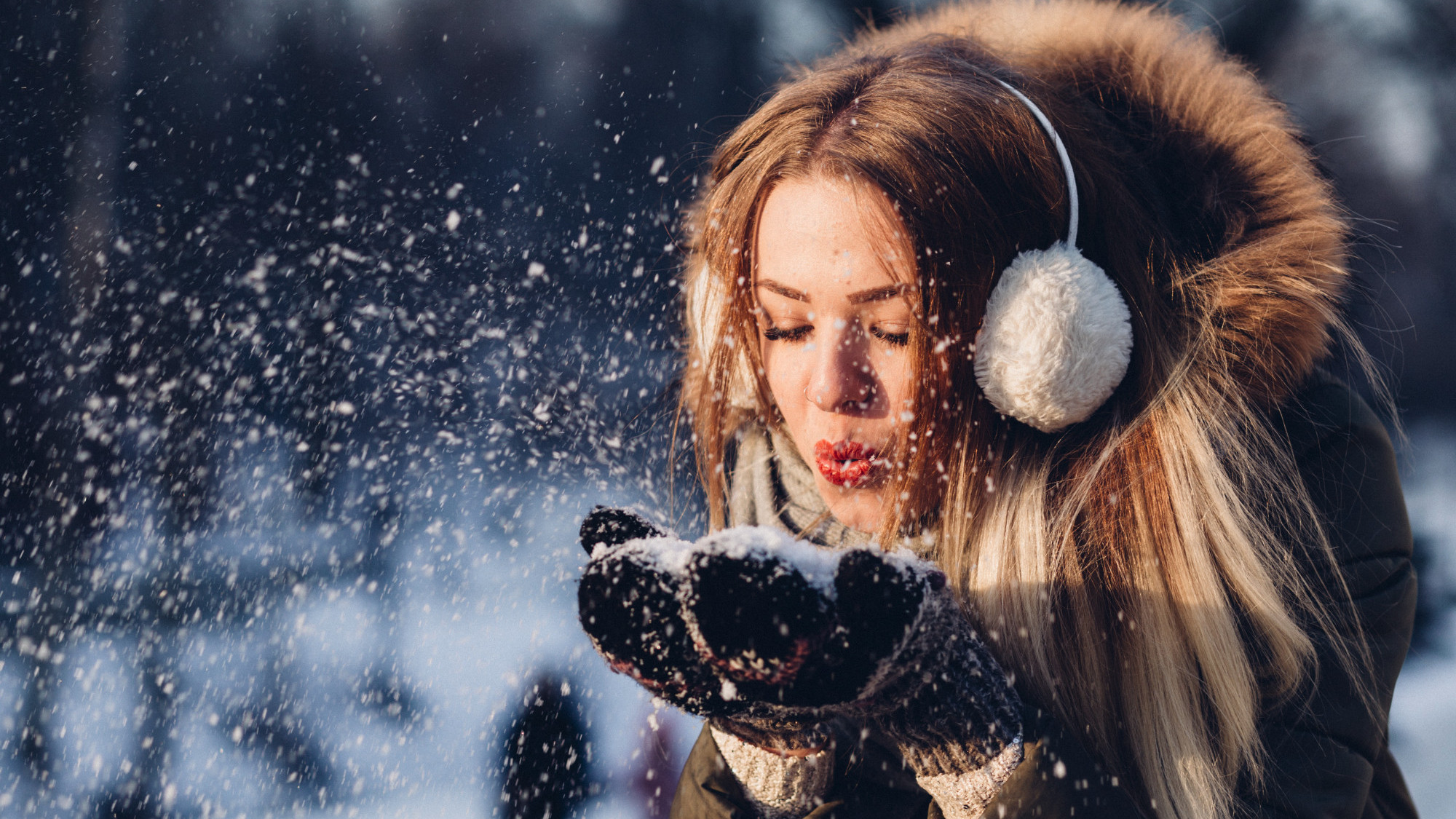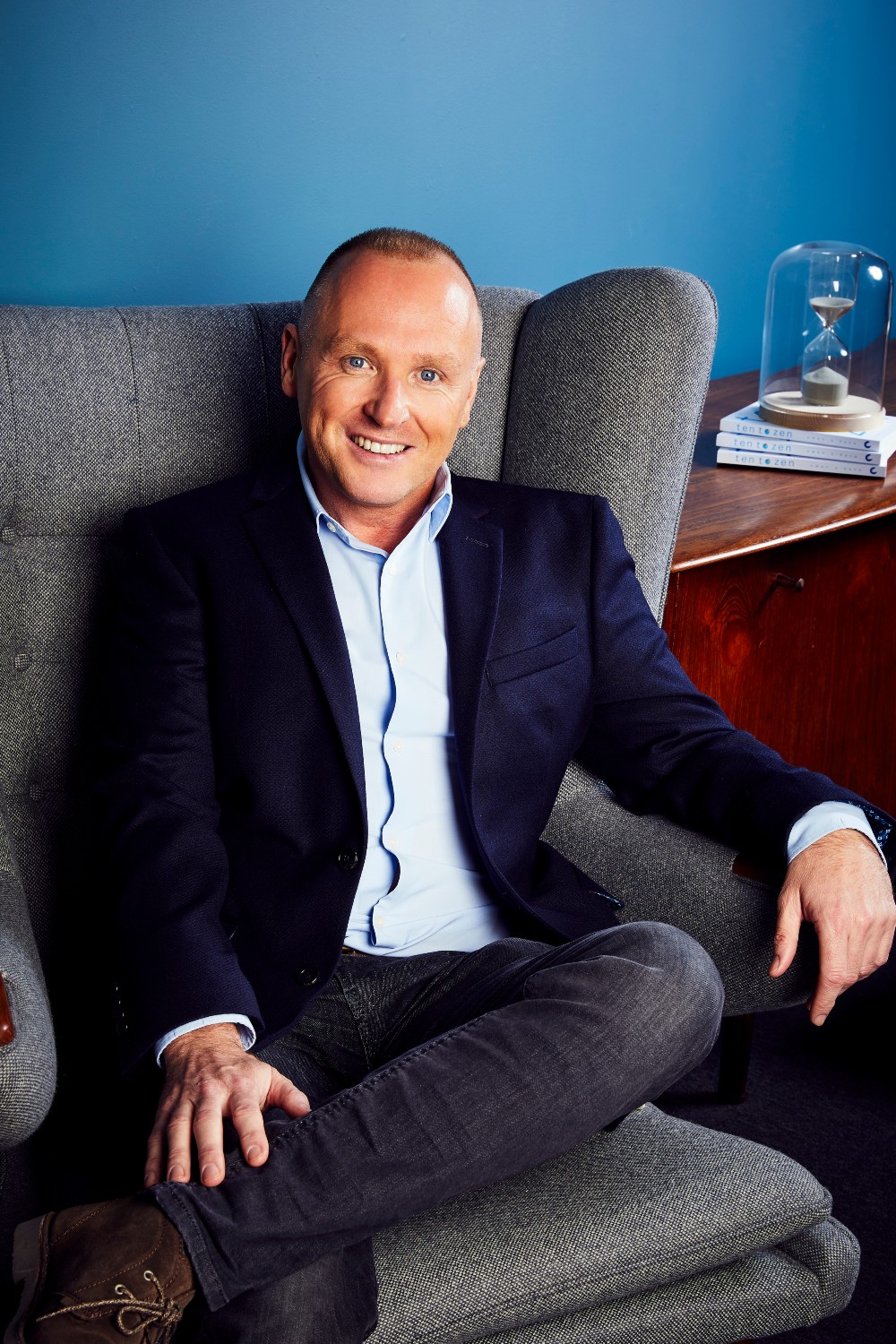Christmas is coming but so is separation from (a lot) of loved ones. A psychotherapist has coping strategies
We're still months away from the normal times, so psychotherapist Owen O'Kane shares four top tips on dealing with separation during the pandemic


Celebrity news, beauty, fashion advice, and fascinating features, delivered straight to your inbox!
You are now subscribed
Your newsletter sign-up was successful
We're still months away from the normal times, so psychotherapist Owen O'Kane shares four top tips on dealing with separation during the pandemic
Even as we approach Christmas, we know it’s going to be a very different year when we are being told “Don’t hug Granny.” The jury is still out whether carrots for Santa’s reindeers is legal this year. Who knew what type of year 2020 would turn out to be with lockdowns, bubbles, tiers, circuit breakers, furloughs, shielding, the rule of six and curfews becoming a normal part of life. But the problem is, there is nothing ‘normal’ about any of this. The restrictions we weave in and out of mean most of us are experiencing separation from loved ones.
Anxiety impacts your mood
Depending on how your life is set up ‘loved ones’ could be your family, friends, a community you belong to or even neighbours. Research, of course, tells us that separation from others increases anxiety and negatively impacts mood. It comes as no surprise then that organisations such as The Princes Trust, Mind, and Samaritans have reported significant increases with mental health presentations this year.

Reasons separation makes you struggle
If you have days when are feeling lonely, disconnected, confused, isolated, anxious or vulnerable, please remember this is very normal for the times we are in. If you haven’t been baking cakes, learning to play the cello or doing PE with Joe, it’s OK. I think many people have experienced days of sitting in their pyjamas asking what the hell is this all about? It is also worth remembering that separation or disconnection from the key people in your life will exacerbate some negative feelings because you are hard wired to connect.
Here’s a few scientific explanations that will help you understand why you might be struggling, many of which I discuss in my book Ten Times Happier:
* The absence of physical touch can lead to a reduction of dopamine and oxytocin. These hormones contribute to our sense of ‘feeling good,’ hence a depletion will cause the opposite.
* The absence of ‘actual’ connection can lead to a reduction in serotonin, which is one of the key hormones for stabilising mood.
Celebrity news, beauty, fashion advice, and fascinating features, delivered straight to your inbox!
* There are increasing reported cases of 'screen fatigue' with online platforms proving a poor substitute for in person human interaction.
* Loneliness can lead to a reduction in energy, motivation and even have a negative impact on the immune system.
What you can do help yourself
As we move towards mass vaccination to control the pandemic, it is worth remembering that we may have come through the worst of this scenario. Hopefully within months we will all be able to reconnect with our loved ones and return to a more ‘normal’ way of life. However, in the meantime here are my four top tips for dealing with separation:
1. This is temporary mindset. During periods when you are finding separation from others difficult try to remember that every war, catastrophe, famine or tragic event eventually ends. This too will end. Try to focus that on the fact that we are on the way through to better times. This will help you cope whilst you wait to reconnect fully to loves ones.

2. Connect in whatever way you can. As human beings we need to connect, just as we need to breathe. Connect to loved ones and others in whatever way is possible for you, telephone, email, zoom, (although be mindful of screen time) or even writing letters. I know this may sound very ‘old school’ but there have been some really interesting studies showing that writing a letter or receiving a letter can result in a burst of happy hormones.
3. Help someone. There is no better way than stepping out of our own loneliness or struggle than by helping someone else having a hard time. There are many opportunities to volunteer, support neighbours or get involved in a cause that is important to you. It is well documented that acts of kindness have a very positive impact on mood and anxiety reduction.
4. Go to a green space and get outdoors. Going for a walk in a place of natural beauty is known to reduce anxiety and improve mood. This will help change focus from any isolation or loneliness you might be feeling and connect you to nature with all its instantly helpful benefits.
* Owen O’Kane is a psychotherapist, former NHS Clinical Health, and Sunday Times best-selling author of Ten Times Happier, out now
Maria Coole is a contributing editor on Marie Claire.
Hello Marie Claire readers – you have reached your daily destination. I really hope you’re enjoying our reads and I'm very interested to know what you shared, liked and didn’t like (gah, it happens) by emailing me at: maria.coole@freelance.ti-media.com
But if you fancy finding out who you’re venting to then let me tell you I’m the one on the team that remembers the Spice Girls the first time round. I confidently predicted they’d be a one-hit wonder in the pages of Bliss magazine where I was deputy editor through the second half of the 90s. Having soundly killed any career ambitions in music journalism I’ve managed to keep myself in glow-boosting moisturisers and theatre tickets with a centuries-spanning career in journalism.
Yes, predating t’internet, when 'I’ll fax you' was grunted down a phone with a cord attached to it; when Glastonbury was still accessible by casually going under or over a flimsy fence; when gatecrashing a Foo Fighters aftershow party was easy-peasy-lemon-squeezy and tapping Dave Grohl on the shoulder was... oh sorry I like to ramble.
Originally born and bred in that there Welsh seaside town kindly given a new lease of life by Gavin & Stacey, I started out as a junior writer for the Girl Guides and eventually earned enough Brownie points to move on and have a blast as deputy editor of Bliss, New Woman and editor of People newspaper magazine. I was on the launch team of Look in 2007 - where I stuck around as deputy editor and acting editor for almost ten years - shaping a magazine and website at the forefront of body positivity, mental wellbeing and empowering features. More recently, I’ve been Closer executive editor, assistant editor at the Financial Times’s How To Spend It (yes thanks, no probs with that life skill) and now I’m making my inner fangirl’s dream come true by working on this agenda-setting brand, the one that inspired me to become a journalist when Marie Claire launched back in 1988.
I’m a theatre addict, lover of Marvel franchises, most hard cheeses, all types of trees, half-price Itsu, cats, Dr Who, cherry tomatoes, Curly-Wurly, cats, blueberries, cats, boiled eggs, cats, maxi dresses, cats, Adidas shelltops, cats and their kittens. I’ve never knowingly operated any household white goods and once served Ripples as a main course. And finally, always remember what the late great Nora Ephron said, ‘Everything is copy.’
